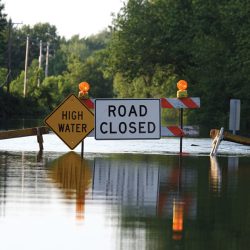New Research Center Combats “Forever Chemicals”
The UW leads the charge in protecting water quality and public health.

Christy Remucal, who will head the UW’s new PFAS Center, is an expert on the dangerous chemicals in the Great Lakes region. Courtesy of Seagrant
As the home of the new Center of Excellence in PFAS Environmental Science, UW–Madison is better positioned than ever to identify dangerous chemicals in our environment.
The new center will be housed at the UW’s Water Science and Engineering Lab (WSEL), where students and scientists from around the state and across academic disciplines are already conducting research into chemical contaminants in our water and throughout the environment. The center was made possible by nearly $1 million in federal funding secured with the help of U.S. representative Mark Pocan ’86.
“This funding will be used to help conduct research to improve the quality of Wisconsin’s drinking water by removing these harmful PFAS chemical compounds from the environment,” Pocan said at an event at WSEL.
Per- and polyfluoroalkyl substances (PFAS) are used in the production of everything from nonstick pans and food packaging to carpets and flame retardants. They accumulate quickly in water supplies, and some do not degrade naturally — hence the nickname “forever chemicals.” Some PFAS are also toxic even at low concentrations and have been linked to birth defects, weakened immune response, reproductive issues, and cancer.
Most of the new center’s funding is designated for the purchase of a high-resolution mass spectrometer, an instrument used to detect and study PFAS. The Core Facility for Advanced Water Analysis in WSEL currently owns a mass spectrometer capable of detecting less than 40 of more than 9,000 chemicals designated as PFAS. The new instrument will allow researchers to study more types of PFAS. In the future, it could even assist with conducting PFAS forensics: determining the sources introducing certain PFAS into the environment.
“Not very many other Universities of Wisconsin–system schools even have [the technology] for basic PFAS analysis,” says Christy Remucal, UW professor of civil and environmental engineering and leader of the new PFAS research center. “To my knowledge, this will be the first high-resolution mass spectrometer dedicated for PFAS work in the state.”
Published in the Fall 2024 issue



Comments
No comments posted yet.